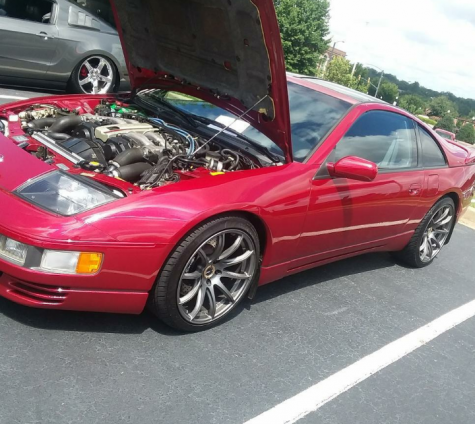First Car: Choosing that Perfect Companion pt. 2
November 1, 2017

“Yo V6 ain got nunin on my V8!” This is a phrase that one will hear hundreds if not thousands of times if they try to have a civilized conversation about cars with an uncivilized car person, but what does this mean?
To the untrained mind, V6 and V8 are just as confusing as the acronyms used by modern day teens. In actuality, a V6 and a V8 are no different from a glass of Pepsi and a glass of Coca-Cola. While the V6 and V8 engines hold a majority of the spotlight when it comes to the American automotive market, there are many other engine layouts such as the Flat 4 engines used by Subaru, Porsche’s Flat 6 engines, Mazda’s Rotary engines, and you also have straight 4 and straight 6 engines. Now, there are many other engine configurations, and I will get more in depth with them. For now, I am going to stick with the most known engines in the U.S. market.
A V6 is a type of engine. The “6” means that there are a total of six pistons in the engine and the “V” mean that the pistons are laid out in an angle with three of the pistons on each side of the engine in an angle that forms a “V” shape. The same formula applies to a V8 except that a V8 has an additional two pistons in its engine block.
Both engines have their own strong and weak points. With a V6 engine, you can expect better MPG due to it taking less fuel to run the engine, and they tend to weigh less than V8’s due to the lack of the additional two pistons. Some of the best known V6 engines belong to the Honda family. The Honda engine family gained a cult following due to their ability to go 200,000 miles and still run better than most cars do at 100,000 miles. The U.S. Market has favored its V8’s for decades, and it is usually because of this common idea, “Bigger is Better!” In some cases, this is true, in others, not so much. The V8 engines used in many American made cars tend to be heavier than the average V6 engine. Thankfully, V8 engines lean towards having more HP (Horse Power) and Torque to make up for the extra weight. You can expect a lower MPG rating and a few more mechanical problems thanks to the extra pistons. U.S. automakers such as Chevy, Ford, and Dodge are highly regarded for their usage of V8 engines in anything from coupes, trucks, and even minivans.

